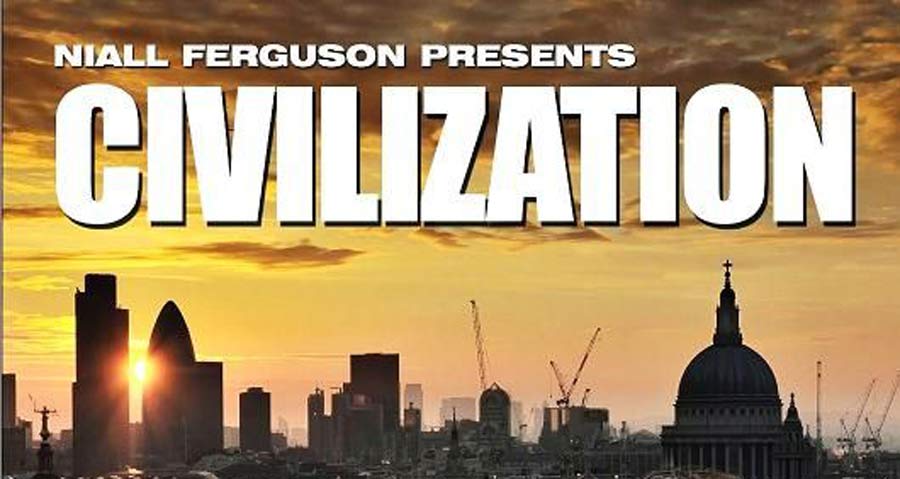Civilization: Is the West History episode 4: Niall Ferguson looks at how late 19th-century advances in modern medicine made it possible to export Western civilization to the ‘Dark Continent’: Africa. The French Empire consciously set out to civilize West Africa by improving public health as well as building a modern infrastructure. Yet in other European empires – notably Germany’s in southwest Africa – colonial rule led to genocide. What was the link from medical science to racial pseudo-science?
The imperialists talked of their civilizing mission, but their rivalry ultimately caused world wars that endangered the West’s global dominance. Today, have Western aid agencies learned lessons from the past? Or is China in the process of building a new African empire?
Niall Ferguson asks why it was that Western civilization, from inauspicious roots in the 15th century, came to dominate the rest of the world; and if the West is about to be overtaken by the rest. Ferguson reveals the ‘killer apps’ of the West’s success – competition, science, the property owning democracy, modern medicine, the consumer society and the Protestant work ethic – the real explanation of how, for five centuries, a clear minority of mankind managed to secure the lion’s share of the earth’s resources.
Ferguson’s conclusions are surprising and provocative. He reveals that while the killer apps have finally been downloaded by the rest, in the process Western civilization has lost faith in itself. And it is that loss of self-belief that poses the biggest threat to its continued predominance.
Civilization: Is the West History episode 4
Western culture, also known as Western civilization, Occidental culture, or Western society, is the heritage of social norms, ethical values, traditional customs, belief systems, political systems, artifacts and technologies of the Western world. Western values become the symbols of dominant mentality for the culture of Western societies that transcended through power and authority. The term applies beyond Europe to countries and cultures whose histories are strongly connected to Europe by immigration, colonization or influence. For example, Western culture includes countries in the Americas and Oceania. Western culture is most strongly influenced by Greek philosophy, Roman law, and Christian culture.
The expansion of Greek culture into the Hellenistic world of the eastern Mediterranean led to a synthesis between Greek and Near-Eastern cultures, and major advances in literature, engineering, and science, and provided the culture for the expansion of early Christianity and the Greek New Testament. This period overlapped with and was followed by Rome, which made key contributions in law, government, engineering and political organization.




